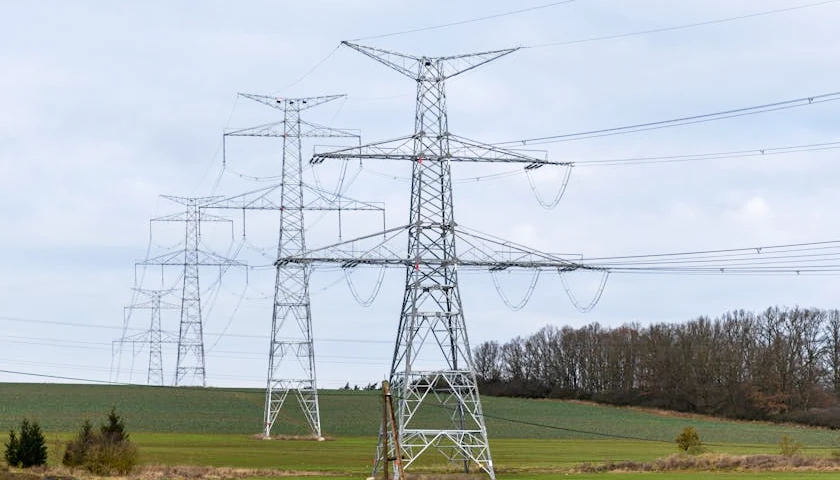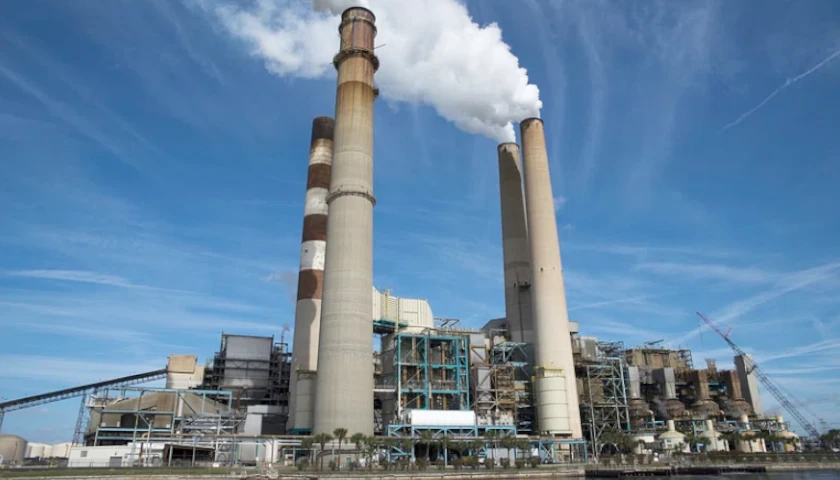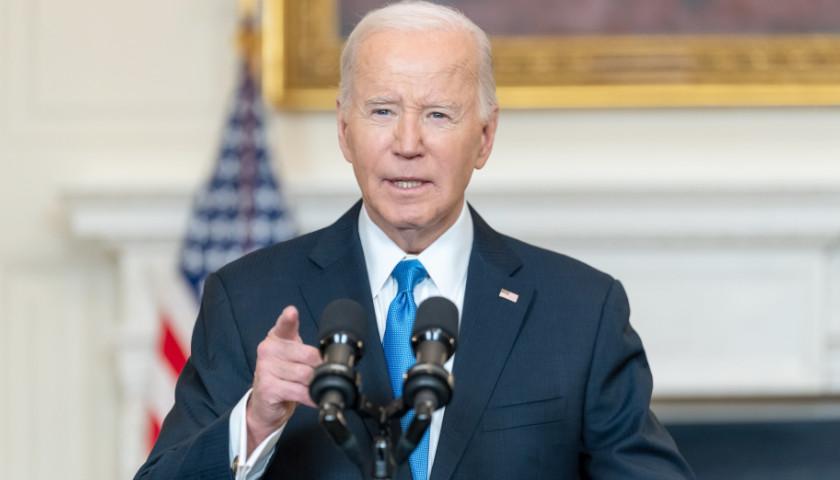Job creation in November bounced back, with 227,000 jobs created, after coming to a standstill in October.
Read MoreTag: economic growth
Commentary: Democrats’ Economic Elitism
Democrats’ display their elitism by using macroeconomic numbers to ignore America’s microeconomic concerns. By promoting the macro-economy, Democrats produced the numbers they now campaign on. However, their macro numbers have come with high inflation that has wreaked havoc on the micro-economies in which most Americans live.
Democrats’ embrace of the macro economy is unmistakable. Paul Krugman’s recent column (10/8) trumpeted that the “macro” numbers “vindicate Bidenomics.” During CBS’s Sunday (10/6) 60 Minutes interview, Kamala Harris immediately ducked into the macro economy when asked about inflation’s impact on Americans.
Read MoreCommentary: Electrification Without the Infrastructure
As state and federal policies mandate the electrification of virtually all end uses to reduce carbon emissions from fossil fuels. For example, 18 states have adopted California’s Advanced Clear Car II rules requiring increasing percentages of new vehicle sales to be EVs, reaching 100% for the 2035 model year. In 2019, New York City enacted Local Law 97, which requires all residential buildings larger than 25,000 square feet to convert to electricity by 2035. Other states, such as New Jersey seek to convert all residential heating to electricity.
Together, mandates for electric vehicles (EVs) and electrification of space and water heat will likely double electricity consumption and peak demand. Coupled with policies that mandate supplying the nation’s electricity with zero-emissions resources, notably intermittent wind and solar power, not only will electricity prices continue to increase but the ability to meet consumers’ increased demand will become more problematic.
Read MoreCommentary: The World Needs Fossil Fuels
It’s summer, and the Sierra Club says: “This is climate change in action. We are living it.”
The United Nations’ secretary-general declares that “a fossil fuel phaseout is inevitable.” And The Lancet, a respected medical journal, insists that nations must swiftly transition away from hydrocarbons.
Read MoreCommentary: Free Markets are Necessary But Not Sufficient
For most of our lifetimes, classically liberal economics so dominated the Right that nobody wondered if conservatives were abandoning free markets. In recent years, though, a new generation of conservative thinkers—more traditionalist, populist, or nationalist than libertarian—has challenged the utility and even the morality of laissez faire economic policy.
We welcome their questions and critiques, as they have compelled American conservatives to have a long overdue conversation about the market, the family, and the state. But the blunt truth is the movement cannot abandon free markets. The moral and practical case for free enterprise is as necessary today as it was when Ronald Reagan and Margaret Thatcher used it to rescue their nations’ economies and win the Cold War.
Read MoreCommentary: Biden Gaslights America on the Economy
Joe Biden is gaslighting America on the economy. His administration is trying to oversell what has underperformed for several reasons: First, the economy is the one issue that affects most Americans most significantly. Second, Biden is doing worse on virtually every other issue. Finally, time is short: the economy is about to get worse, and the election is close. The administration’s strategy is to get Americans to believe what they hear and doubt what they see.
Read MoreMore Investors Bet Inflation Is Here to Stay amid Disappointing Price Data
More investors are projecting a “no landing” scenario where inflation remains elevated but economic growth continues at its current levels following a disappointing inflation report on Tuesday, according to Reuters.
Nearly one out of five fund managers polled by Bank of America predicted a “no landing” scenario as the most likely outcome in the next year, with concerns about such a scenario being intensified by a poor inflation reading that sent U.S. markets into a frenzy on Tuesday, according to Reuters. Tuesday’s consumer price index (CPI) report showed inflation decelerated in January to 3.1% year-over-year from 3.4% in the preceding month, higher than expectations of 2.9%.
Read MoreChina Finishes Off Year with Sluggish Growth as Economy Fails to Recover
China’s economy grew at a rate of 5.2% in 2023, failing to return to the same growth of around 6% year-over-year that was common before the COVID-19 pandemic, according to The Wall Street Journal.
The year’s growth was an improvement on the even worse growth in 2022, which totaled just 3% for that year, and economists expect similar sluggish growth in 2024 unless a big policy change occurs, according to the WSJ. A number of different indicators added to the dismal report, including real growth in urban disposable income, which grew at just 4.8% in 2023 and was the lowest year since 2002, barring 2020 and 2022.
Read MoreGDP Report: U.S. Economic Growth Slows
The U.S. economy is growing at a slower pace, newly released economic data shows.
The Bureau of Economic Analysis released Gross Domestic Product Data Thursday that showed the size of the U.S. economy increased by 1.1% in the first quarter of 2023, more slowly than the previous quarter.
Read MoreInternational Monetary Fund Projects Weaker Than Expected 2022 Economic Growth for U.S. and China
The International Monetary Fund (IMF) cut its global economic growth forecast for 2022 on Tuesday, citing growing COVID-19 cases, supply chain bottlenecks and soaring inflation.
The IMF now projects global gross domestic (GDP) product to grow 4.4% in 2022, down from 5.9% growth in 2021, according to the IMF’s World Economic Outlook report published Tuesday. The IMF projected global GDP would reach 4.9% in its Fall report.
“The global economy enters 2022 in a weaker position than previously expected,” the report said, blaming “downside surprises,” including soaring COVID-19 cases and turbulent markets.
Read MoreCommentary: The Flaw in Bret Weinstein and Heather Heying’s Proposal for the Future of Humanity
Bret Weinstein and Heather Heying, evolutionary biologists and visiting fellows at Princeton University, have written a fascinating new book, A Hunter-Gatherer’s Guide to the 21st Century, which Penguin Random House released in September.
The instant New York Times bestseller is riddled with interesting ideas and clever insights, ultimately arriving at a radical conclusion about how humanity must be governed in the future if we are to avoid civilizational collapse. However, the book’s concluding argument is built upon one fundamental economic fallacy, and to understand the flaw in the proposal is to understand how truly catastrophic the pursuit of Weinstein and Heying’s vision would be.
The Fear of Abundance
Weinstein and Heying’s fundamental claim is about the human propensity to seek economic growth, and the ultimate unsustainability of that goal.
Read MoreExperts Predict Less Economic Growth, Elevated Inflation for Years to Come
A survey released Monday found that business experts expect prices and inflation to rise at elevated levels for years to come.
The National Association for Business Economics released the results of a survey of 48 economic experts who downgraded their growth predictions and projected elevated inflation through the second half of 2023, if not later.
“NABE Outlook survey panelists have ramped up their expectations for inflation significantly since September,” said NABE Vice President Julia Coronado, founder and president, MacroPolicy Perspectives LLC. “The core consumer price index, which excludes food and energy costs, is now expected to rise 6.0% from the fourth quarter of 2020 to the fourth quarter of 2021, compared to the September forecast of a 5.1% increase over the same period.”
Read MoreEuropean Economies Grew Faster Than U.S. As Inflation and Supply Chain Delays Crippled the Country
European economic growth outpaced the U.S. and China as COVID-19 restrictions eased and vaccination rates increased, but supply chain disruptions and inflating prices will hold back expansion in the near future, The Wall Street Journal reported Friday.
Gross domestic product in the eurozone increased at a seasonally adjusted annualized rate of 9.1% in the quarter ending in September, according to the WSJ. In comparison, the U.S. economy grew at a 2% rate and China grew at just 1%.
Read MoreIMF Expects Less Economic Growth from U.S. Amid Supply Chain Chaos
The International Monetary Fund cut its global growth forecast for 2021 on Tuesday, citing supply chain disruptions and pandemic-related health concerns.
In the International Monetary Fund’s (IMF) World Economic Outlook report, released Tuesday, the IMF’s economists share anticipations for global economic growth measuring 5.9% in 2021, a downgrade from their 6% projection in July.
Read MoreReport: Private Job Hirings Beat Expectations Amid COVID-19 Scares, Slow Economic Growth
Private companies added 568,000 jobs in September, exceeding expectations as the country faced growing numbers of delta variant cases and slow economic growth, according to a major payroll report.
The 568,000 jobs added is a sharp increase from the 340,000 jobs added in August, the ADP National Employment Report showed. Experts predicted private companies would add 425,000 jobs in September, CNBC reported.
Read MoreCommentary: China’s ‘One-Child Policy’ Left at Least One Million Bereaved Parents Childless and Alone in Old Age, with No One to Take Care of Them
A child’s death is devastating to all parents. But for Chinese parents, losing an only child can add financial ruin to emotional devastation.
That’s one conclusion of a research project on parental grief I’ve conducted in China since 2016.
From 1980 to 2015, the Chinese government limited couples to one child only. I have interviewed over 100 Chinese parents who started their families during this period and have since lost their only child – whether to illness, accident, suicide or murder. Having passed reproductive age at the time of their child’s death, these couples were unable to have another child.
Read MoreU.S. Added Just 266,000 Jobs in April, Far Below Expectations
The U.S. economy reported an increase of 266,000 jobs in April and the unemployment rate rose slightly to 6.1%, according to Department of Labor data released Friday.
Total non-farm payroll employment increased by 266,000 in April, according to the Bureau of Labor Statistics (BLS) report, and the number of unemployed persons ticked up to 9.8 million. Economists projected a million Americans would be added to payrolls prior to Friday’s report, according to The Wall Street Journal.
“The pieces are really coming together for a burst in activity,” Sarah House, senior economist for Wells Fargo’s Corporate and Investment Bank, told the WSJ. “We’re expecting to see the labor market recovery shift into an even faster gear with the April jobs report.”
Read MoreUtah Tribe Calls Biden’s Order on New Oil Drilling a ‘Direct Attack’ on Its Economy
A Native American tribe in Utah said a Biden administration order blocking new permits to drill for oil and gas on federal lands is a “direct attack” on its economy and sovereignty.
The Ute Indian Tribe is seeking a waiver from Order 3395, which Scott de la Vega, the acting secretary of the interior, implemented on Jan. 21.
Read More
















